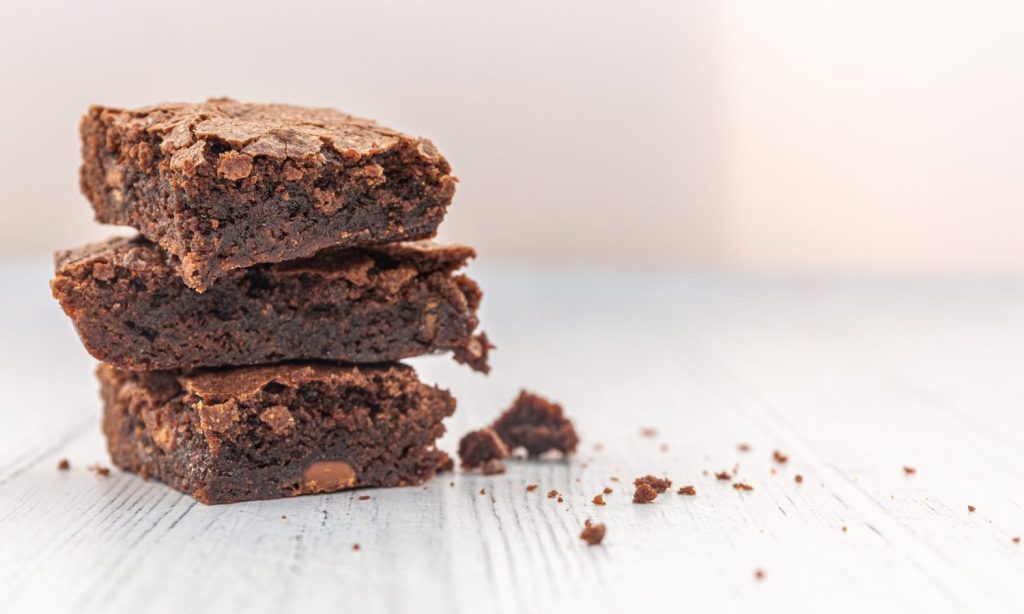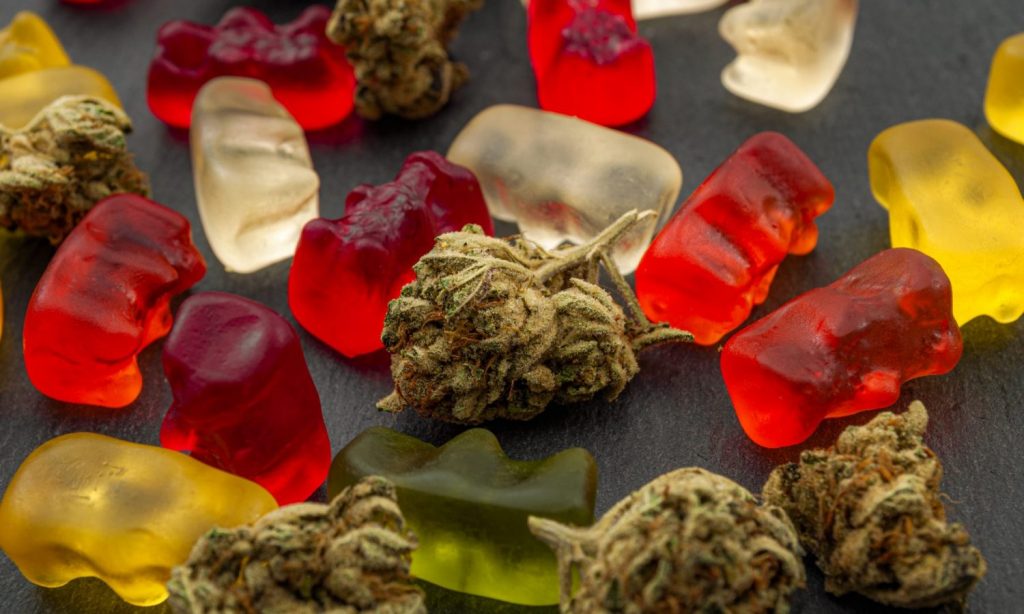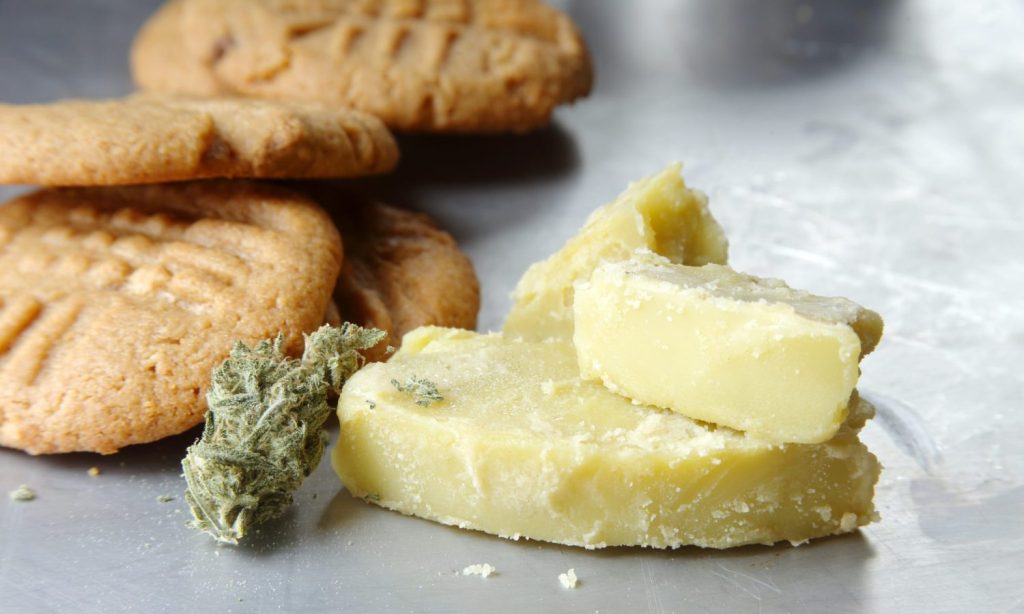Business
How Much THC Is In That Edible? A General Guide To Testing And Dosing

It’s important to always take it slow when you are consuming edibles because the moment you eat too much, you’re in for a trip.
When it comes to consuming cannabis, it’s always a good idea to test your tolerance. However, if you are new to consuming, this might be a tad bit difficult to do. How do you know if you’re able to handle a full dose of an edible you bought at the store? How do you know how much cannabis to use in your butter before making your brownies?
If you’re struggling with these questions, you are in for a treat. Today, we’ll be walking you through the fundamentals of dosing, and how to properly test an edible you buy from a dispensary as well as what you should consider when you are infusing cannabis into your own edibles. If you are a seasoned cannabis user, some of this information might still be valuable for you.

However, if you are completely new to the world of cannabis, this information might be just what you need to avoid greening out. If you’re not familiar with greening out, it is essentially experiencing an “overdose” of cannabis. Unlike other drugs, overdosing on cannabis is relatively safe. However, the experience could be scary — especially if you’re consuming edibles.
This is because edibles process the THC differently than when you smoke it. Instead of delta-9-THC — the byproduct of smoking cannabis — you get 11-hydroxy-THC. It’s estimated that 11-hydroxy-THC is 10 times more potent than delta-9.
This is why it’s important to always take it slow when you are consuming edibles because the moment you overdose, you’re in for a trip. Fortunately, the odds of you dying is slim to none. In most cases, finding a quiet place, drinking some coffee and going to sleep will get you through the Green Out.
Testing Your Dispensary Bought Edibles
The inspiration for this article came from a post I saw online which dived into the basics of dosing for first timers. In essence, the post explains that if it’s your first time, it’s best to buy a 1:1 ratio of THC to CBD. THC will get you high, but CBD counteracts this high.
Conversely, having a 2:1 ratio of THC to CBD would mean that the THC would be expressed more. Think of CBD as the break that would limit how far the THC can take you. Remove some of that, and the THC will take you further down the rabbit hole.
Next, let’s say you buy a packet marked with 50 mg of THC with 10 gummies in it. This means that each gummy is 5 mg. According to the post, here you’ll want to take one gummy and divide it further down into 4 pieces leaving you with 1.25 mg of THC per bit.
The post then suggests taking one portion of the gummy and to wait for 24 hours. Subsequently, you would increase the dose until you reach a pleasant high.
This is a very conservative way of doing it. The fact of the matter is that 1.25 mg of THC will hardly do anything to anyone. Your threshold is far higher.
You could do 1 bit of THC (1.25 mg) and then wait roughly 1 hour. If after 1 hour you don’t feel anything, take another one and wait another hour.

If you still feel nothing after the second hour, go ahead and consume 2.5 mg and wait again. If you still feel nothing after this, DO NOT EAT ANYMORE! Now you wait and reset for the next day, when you’ll start your dose with 2.5 mg and wait.
You will then follow the same protocol as day one until you feel a nice buzz. Once you have found your threshold, you know how much THC is required to get you going and this data can be applied to future edibles.
This is all good for dispensary bought products, but how much weed do you use in butter when making your own edibles?
Gauging Your Own Homemade Edibles
I could write about using X amount of weed per X amount of butter, but this would not be accurate, especially considering that strains have different percentages of weed. You’re not going to need the same amount of cannabis that contain 25% THC as cannabis that contains 15% THC.
Fortunately, I don’t have to explain these things to you since there are online tools available that allows you to calculate these things automatically.
The Cannabutter Dosage Calculator allows you to plug in your particular values and it will automatically work out how much you need.

Simply fill out the percentage of THC in your weed. The page has a sliding bar which you can set to your desired THC levels. Then, you’ll see a box where you’ll write out the cannabis used in grams. Finally, you’ll also be listing the number of servings you’ll be making with the blend.
RELATED: How Long Do Marijuana Edibles Stay In Your System?
Once you have filled this out, you’ll have a calculation on the dose per home made edible! As with the dispensary edible, you’ll want to test this out slowly and ramp your way up. If you already know your threshold dose, you can start there, but always be careful.
What Do I Do If I Overdose?
It could be that you overdose on weed when experimenting. As mentioned, drinking some coffee, finding a quiet place and laying down is key to coming out with flying colors.
The reason why most people go to the ER with a cannabis overdose is because they work themselves up. If you simply engage in slow breathing, relaxing, and knowing that whatever goes up must come down, you’ll be fine. However, if you follow the suggestions above, you should be safe from overdosing.
Source: https://thefreshtoast.com/how-to/a-general-guide-to-testing-and-dosing-marijuana-edibles/
Business
New Mexico cannabis operator fined, loses license for alleged BioTrack fraud

New Mexico regulators fined a cannabis operator nearly $300,000 and revoked its license after the company allegedly created fake reports in the state’s traceability software.
The New Mexico Cannabis Control Division (CCD) accused marijuana manufacturer and retailer Golden Roots of 11 violations, according to Albuquerque Business First.
Golden Roots operates the The Cannabis Revolution Dispensary.
The majority of the violations are related to the Albuquerque company’s improper use of BioTrack, which has been New Mexico’s track-and-trace vendor since 2015.
The CCD alleges Golden Roots reported marijuana production only two months after it had received its vertically integrated license, according to Albuquerque Business First.
Because cannabis takes longer than two months to be cultivated, the CCD was suspicious of the report.
After inspecting the company’s premises, the CCD alleged Golden Roots reported cultivation, transportation and sales in BioTrack but wasn’t able to provide officers who inspected the site evidence that the operator was cultivating cannabis.
In April, the CCD revoked Golden Roots’ license and issued a $10,000 fine, according to the news outlet.
The company requested a hearing, which the regulator scheduled for Sept. 1.
At the hearing, the CCD testified that the company’s dried-cannabis weights in BioTrack were suspicious because they didn’t seem to accurately reflect how much weight marijuana loses as it dries.
Company employees also poorly accounted for why they were making adjustments in the system of up to 24 pounds of cannabis, making comments such as “bad” or “mistake” in the software, Albuquerque Business First reported.
Golden Roots was fined $298,972.05 – the amount regulators allege the company made selling products that weren’t properly accounted for in BioTrack.
The CCD has been cracking down on cannabis operators accused of selling products procured from out-of-state or not grown legally:
- Regulators alleged in August that Albuquerque dispensary Sawmill Sweet Leaf sold out-of-state products and didn’t have a license for extraction.
- Paradise Exotics Distro lost its license in July after regulators alleged the company sold products made in California.
Golden Roots was the first alleged rulebreaker in New Mexico to be asked to pay a large fine.
Source: https://mjbizdaily.com/new-mexico-cannabis-operator-fined-loses-license-for-alleged-biotrack-fraud/
Business
Marijuana companies suing US attorney general in federal prohibition challenge

Four marijuana companies, including a multistate operator, have filed a lawsuit against U.S. Attorney General Merrick Garland in which they allege the federal MJ prohibition under the Controlled Substances Act is no longer constitutional.
According to the complaint, filed Thursday in U.S. District Court in Massachusetts, retailer Canna Provisions, Treevit delivery service CEO Gyasi Sellers, cultivator Wiseacre Farm and MSO Verano Holdings Corp. are all harmed by “the federal government’s unconstitutional ban on cultivating, manufacturing, distributing, or possessing intrastate marijuana.”
Verano is headquartered in Chicago but has operations in Massachusetts; the other three operators are based in Massachusetts.
The lawsuit seeks a ruling that the “Controlled Substances Act is unconstitutional as applied to the intrastate cultivation, manufacture, possession, and distribution of marijuana pursuant to state law.”
The companies want the case to go before the U.S. Supreme Court.
They hired prominent law firm Boies Schiller Flexner to represent them.
The New York-based firm’s principal is David Boies, whose former clients include Microsoft, former presidential candidate Al Gore and Elizabeth Holmes’ disgraced startup Theranos.
Similar challenges to the federal Controlled Substances Act (CSA) have failed.
One such challenge led to a landmark Supreme Court decision in 2005.
In Gonzalez vs. Raich, the highest court in the United States ruled in a 6-3 decision that the commerce clause of the U.S. Constitution gave Congress the power to outlaw marijuana federally, even though state laws allow the cultivation and sale of cannabis.
In the 18 years since that ruling, 23 states and the District of Columbia have legalized adult-use marijuana and the federal government has allowed a multibillion-dollar cannabis industry to thrive.
Since both Congress and the U.S. Department of Justice, currently headed by Garland, have declined to intervene in state-licensed marijuana markets, the key facts that led to the Supreme Court’s 2005 ruling “no longer apply,” Boies said in a statement Thursday.
“The Supreme Court has since made clear that the federal government lacks the authority to regulate purely intrastate commerce,” Boies said.
“Moreover, the facts on which those precedents are based are no longer true.”
Verano President Darren Weiss said in a statement the company is “prepared to bring this case all the way to the Supreme Court in order to align federal law with how Congress has acted for years.”
While the Biden administration’s push to reschedule marijuana would help solve marijuana operators’ federal tax woes, neither rescheduling nor modest Congressional reforms such as the SAFER Banking Act “solve the fundamental issue,” Weiss added.
“The application of the CSA to lawful state-run cannabis business is an unconstitutional overreach on state sovereignty that has led to decades of harm, failed businesses, lost jobs, and unsafe working conditions.”
Business
Alabama to make another attempt Dec. 1 to award medical cannabis licenses

Alabama regulators are targeting Dec. 1 to award the first batch of medical cannabis business licenses after the agency’s first two attempts were scrapped because of scoring errors and litigation.
The first licenses will be awarded to individual cultivators, delivery providers, processors, dispensaries and state testing labs, according to the Alabama Medical Cannabis Commission (AMCC).
Then, on Dec. 12, the AMCC will award licenses for vertically integrated operations, a designation set primarily for multistate operators.
Licenses are expected to be handed out 28 days after they have been awarded, so MMJ production could begin in early January, according to the Alabama Daily News.
That means MMJ products could be available for patients around early March, an AMCC spokesperson told the media outlet.
Regulators initially awarded 21 business licenses in June, only to void them after applicants alleged inconsistencies with how the applications were scored.
Then, in August, the state awarded 24 different licenses – 19 went to June recipients – only to reverse themselves again and scratch those licenses after spurned applicants filed lawsuits.
A state judge dismissed a lawsuit filed by Chicago-based MSO Verano Holdings Corp., but another lawsuit is pending.
Source: https://mjbizdaily.com/alabama-plans-to-award-medical-cannabis-licenses-dec-1/
-

 Business2 years ago
Business2 years agoPot Odor Does Not Justify Probable Cause for Vehicle Searches, Minnesota Court Affirms
-

 Business2 years ago
Business2 years agoNew Mexico cannabis operator fined, loses license for alleged BioTrack fraud
-

 Business2 years ago
Business2 years agoAlabama to make another attempt Dec. 1 to award medical cannabis licenses
-

 Business2 years ago
Business2 years agoWashington State Pays Out $9.4 Million in Refunds Relating to Drug Convictions
-

 Business2 years ago
Business2 years agoMarijuana companies suing US attorney general in federal prohibition challenge
-

 Business2 years ago
Business2 years agoLegal Marijuana Handed A Nothing Burger From NY State
-

 Business2 years ago
Business2 years agoCan Cannabis Help Seasonal Depression
-

 Blogs2 years ago
Blogs2 years agoCannabis Art Is Flourishing On Etsy









